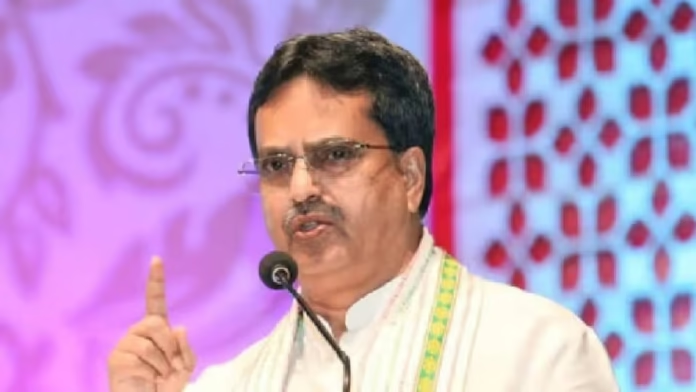Former Tripura Chief Minister sharply criticized the Union Budget, claiming it prioritizes the interests of the wealthy while neglecting the struggles of the underprivileged. He accused the central government of using rhetoric about poverty alleviation while crafting policies that largely benefit corporations and high-income groups. His remarks sparked a debate on the economic direction of the country, as he argued that the budget lacks concrete measures to uplift the most vulnerable sections of society.
He expressed disappointment over the budget’s approach, stating that despite its claims of inclusivity, it fails to provide significant relief for the poor. He pointed out that while major corporations receive tax cuts and incentives, ordinary citizens continue to struggle with rising inflation, unemployment, and limited access to essential services. He emphasized that the government must focus on policies that directly impact the working class, ensuring that growth benefits every segment of society rather than just a privileged few.
He also highlighted the increasing economic disparity in the country, attributing it to policies that concentrate wealth in the hands of a few. He stated that while the government makes promises of financial support for farmers, laborers, and small businesses, the actual allocation of funds tells a different story. He argued that subsidies and welfare schemes meant for the poor often see budgetary reductions, while large infrastructure projects receive massive funding that primarily benefits private enterprises.
Addressing the media, he criticized the government’s handling of rural development, education, and healthcare. He argued that these sectors should be at the heart of the budget, yet they continue to be underfunded. He questioned how the government plans to address poverty when crucial public services remain inaccessible to a large portion of the population. He urged policymakers to rethink their priorities and allocate resources in a way that ensures meaningful economic progress for everyone, not just the elite.
He pointed out that the employment crisis remains unresolved despite ambitious economic growth projections. He stated that job creation has not kept pace with the rising number of job seekers, leading to widespread discontent among the youth. He called for targeted policies that generate sustainable employment opportunities rather than relying on trickle-down economics. He argued that investments in small-scale industries, vocational training, and rural employment programs would provide more tangible benefits than corporate tax reliefs.
He also criticized the budget’s focus on privatization, stating that it disproportionately benefits wealthy investors while leaving public sector employees uncertain about their future. He expressed concern that continued privatization of essential services such as healthcare, education, and transportation would make them unaffordable for the common citizen. He urged the government to strengthen public institutions rather than selling them off in the name of economic efficiency.
The former Chief Minister reiterated that genuine economic growth must be measured by its impact on the common people. He called for stronger social welfare programs, fair taxation policies, and increased investments in public services. He argued that a government that truly serves the people should prioritize policies that reduce inequality rather than widen the gap between the rich and the poor.
He concluded by urging citizens to demand accountability from their leaders. He encouraged people to scrutinize the policies presented in the budget and raise their voices against measures that fail to address their needs. He stated that a truly inclusive economy is one that ensures financial stability and opportunities for all, rather than favoring a select few. His remarks added to the growing discourse on economic justice, as discussions about the Union Budget’s impact continue across the country.


